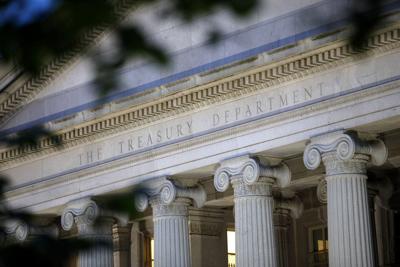This year, inflation has hit consumers hard in the pockets. Now it’s eating into their nest eggs in the form of lower interest rates on bank savings accounts and lower returns on stock market mutual funds in their 401k plans.
So what’s an investor to do?
Experts suggest investors buy Series I savings bonds, a low-risk investment from the federal government that are paying 9.62% between May and October. According to the U.S. Treasury, this is the highest rate since 1998.
By comparison, the national average of interest paid on bank savings accounts was 0.06% in 2021, down 33% from 2020, according to the latest figures from the Federal Deposit Insurance Corp.
The Standard & Poor’s 500 is down 21% as of June 30th and the Dow Jones Industrial Average (DJIA) dropped 15% in the first half 2022. About 40% of Americans are invested in mutual funds through their 401k plans, many of which invest in funds that mirror the S&P 500 or the DJIA.
“They (I-Bonds) are great when inflation is high,” said Ivanhoe Smith, managing partner at Coral Island Investments in Philadelphia. “They might not be good all the time, but this year they are great.”
One investor, Jay Henegan, who is employed at a major pharmaceutical firm, agreed.
According to Henegan, the best rate he could get on a money market now was 1.75%.
“I needed a safe place to put some money,” Henegan said. “I needed to further diversify my portfolio. I have enough in equities and too much sitting in cash.”
Henegan is not alone. By mid-June, the U.S. Treasury had sold $14.4 billion in I bonds, more than were sold in 2021.
Investors are limited by the treasury to buying $10,000 in I bonds a year. But an individual can purchase an additional $5,000 in paper bonds, using their federal income tax refund.
For his part, Henegan plans to max out his investment in I bonds this year.
In May, the consumer price index, which measures inflation, rose 8.6%, compared to the same month in 2021, according to the latest numbers from the U.S. Bureau of Labor Statistics.
Supply chain issues, brought on by labor shortages due to the pandemic and Russia’s attack on Ukraine, have pushed up inflation rates to the highest level in 40 years, pushing food and gas prices higher. This has affected individuals, as well as businesses.
For example, higher prices have caused consumers to cut back on spending, hurting businesses bottom lines, economists say.
Ivanhoe Smith, managing partner of Coral Island Investments, said some investors don’t pay enough attention to inflation, especially when it is low, when seeking returns. In times like now, when inflation is higher, investors should play closer attention, he said.
For instance, Smith said, inflation affects what is known in finance as the “real rate of return,” which subtracts the inflation rate from your return.
This year, some savings vehicles that are usually considered safe, such as money market accounts or certificates of deposit, are yielding about 1%. But Smith said when you take into consideration that inflation is 8.6%, you are looking at a real rate of return that is -7.6%.
The rates on I bonds combine a fixed rate, right now zero, and a variable rate, calculated by the treasury, and designed to protect savers from inflation. The minimum purchase is $25 and the maximum is $10,000 per year. I bonds can be purchased from the TreasuryDirect.gov website, but they are electronic securities. Paper I bonds have a $50 minimum, but can only be purchased with a tax refund. You need a special IRS form to do so.
If you buy an I bond, you have to hold it for a year or you will face penalties. If you cash them after five years, you will lose the previous three months of interest before you purchased them. Experts say this is not the place to put your emergency fund.
To open an account on the TreasuryDirect.gov website, you must be at least 18 years old. Completing the online application should not take longer than 10 minutes. Investors will need the following information: their Social Security number, driver’s license or state ID number and expiration date, bank routing number, bank account number for a savings or checking account, and email address.
For more information, call 844-284-2676 or visit TreasuryDirect.gov.







(0) comments
Welcome to the discussion.
Log In
Keep it Clean. Please avoid obscene, vulgar, lewd, racist or sexually-oriented language.
PLEASE TURN OFF YOUR CAPS LOCK.
Don't Threaten. Threats of harming another person will not be tolerated.
Be Truthful. Don't knowingly lie about anyone or anything.
Be Nice. No racism, sexism or any sort of -ism that is degrading to another person.
Be Proactive. Use the 'Report' link on each comment to let us know of abusive posts.
Share with Us. We'd love to hear eyewitness accounts, the history behind an article.